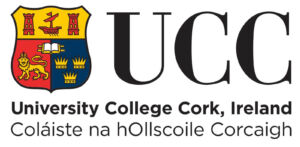MA in History – The Irish Revolution 1912-1923
Key Points
The objective of the course is to introduce students, familiarize them and instill in them an advanced understanding of the events of the sources for the study of historiographic lines of research related to social memory and the commemoration of the revolutionary decade of Mexico. Modern Irish history from the start of the crisis by the third Home Rule Bill in 1912 to the conclusion of the Irish Civil War in 1923.
Upon completion of the course, students should be able to:
- Assess the significance of the major issues and problems of the ‘revolutionary decade’ in modern Irish history, 1912-23.
- Summarize opposing interpretations of the meaning of the events of the ‘revolutionary decade’
- compare the relative advantages and disadvantages of public and academic histories of the ‘revolutionary decade’
- assess and incorporate new knowledge informed by the forefront of the learning field;
- judge the value of the source material available for the study of this period
- assess the contribution of the work of specific historians to our understanding of the ‘revolutionary decade’
The first module, Sources and Debates in the Irish Revolution, will examine contemporary writings, speeches, and debates from the revolutionary period, with a focus on such figures as Padraig Pearse, James Connolly, Edward Carson, James Craig, David Lloyd George, Arthur Griffith., Terence. MacSwiney, Constance Markiewicz, and many others. Students will also know the source material available for the study of the period, both in handwritten form and online, such as government files, newspapers, IRA pension applications, testimonies from the Office of Military History, police records and the like. The second module, Historiography of the Irish Revolution, examines the arguments and interpretation of events by historians from the 1920s to the present day.
The final module, Public History, Commemoration and the Irish Revolution, focuses on the role of ‘public history’, that is, the use of the events of this ‘revolutionary decade’ by politicians and other groups and individuals to promote contemporary agendas.
The research module provides candidates with the opportunity to explore in depth the topic of their proposal.
Program Structure
Students take modules worth 90 credits that comprise taught modules worth 45 credits (Part I) and a dissertation worth 45 credits (Part II).
Students earn 90 credits as follows:
Course practices
The course is full-time and is taught using a variety of teaching methods. The main mechanism will be through discussion seminars, but there will also be opportunities for students to present their research findings, along with field trips to some of the sites in the city and County Cork associated with the revolutionary period, including places like Kilmichael. . , Crossbarry and Béal na mBláth.
There will be a combination of lectures and seminars, averaging 4-5 class hours per week, plus individual tutorial discussions. In HI6042 there is also the one week field trip (5 days, 4 nights trip).
The program uses a variety of continuous evaluation methods, including essays, book reviews, and the analysis of documents, artifacts, and television and film productions. There are no written exams.
Career opportunities
Upon successful completion of the Master of Arts in Celtic Civilization, students to Graduates of the course will be well placed, either to continue further study of the period (the course serves as an ideal preparation for research at the doctoral level) , or to apply for the many jobs related to the revolutionary decade that arise in the fields of heritage, the media, research and tourism, the result of the great interest that its centenarians arouse in the period.
Admission requirements
The entry requirement is a Second Class Honors Grade I in a primary honors degree (NFQ, Level 8) or equivalent in History or a related discipline.
Candidates holding a second-class honors degree in a primary honors degree (NFQ, level 8) in history or a related discipline will also be considered subject to a written expression of interest and / or interview in accordance with the procedures of school selection.
In exceptional circumstances, substantial professional experience in a relevant and related field of employment (such as, but not limited to, teaching, archives, museums, heritage or tourism industries), equipping the candidate with the knowledge, skills and the attributes necessary to undertake a master’s program, can be accepted as compensation for the absence of a bachelor’s degree at the required level. All such requests will be considered under the Recognition of Prior Learning (RPL) on a case-by-case basis by the program coordinator and will be subject to approval by the College of Arts, Celtic Studies and Social Sciences.
English requirements
All graduate applicants whose first language is not English must provide evidence of English language proficiency. Certain tests (eg, IELTS, TOEFL, and Pearson PTE) have a three-year time limit on their validity and will apply. English language tests must be taken no more than three years prior to the start of a program.
Please note that Secure English Language Test (SELT) scores must be obtained in a single session of the corresponding qualification (for example, IELTS and TOEFL). We will not accept a combination of individual component scores from multiple tests.
Applicants who are nationals of a country that, according to the UCC, is predominantly English-speaking, or who have a degree or equivalent qualification that was taught in a country that is considered predominantly English-speaking, will normally be assumed to have met the language requirements of the UCC. However, in some circumstances, applicants may be required to present evidence of an English language qualification to satisfy the college program entry requirements.
Request your quote
An advisor will contact you by phone and email within the following hours


